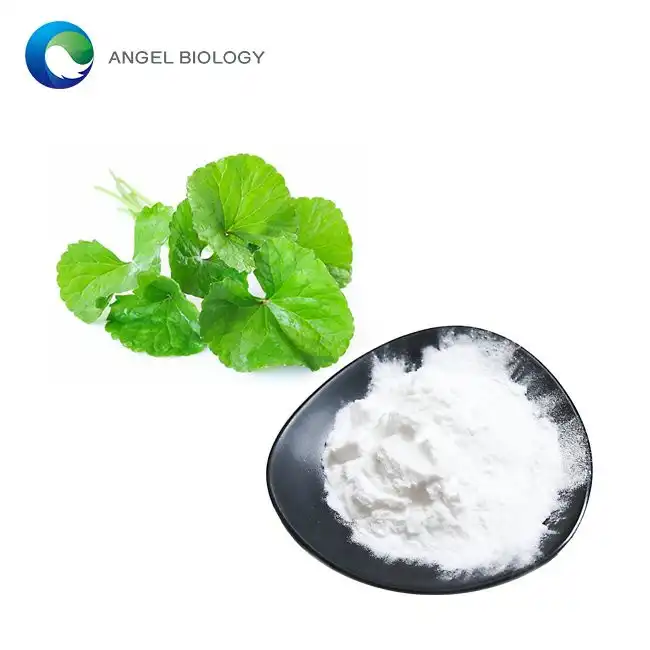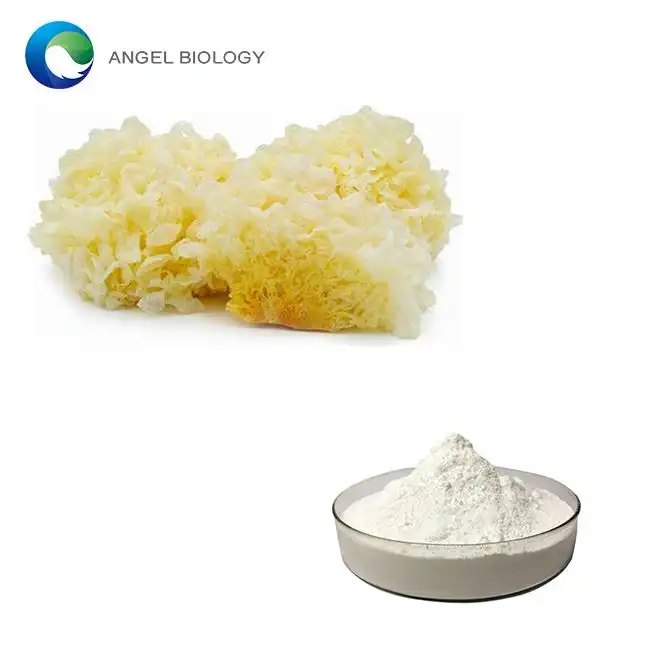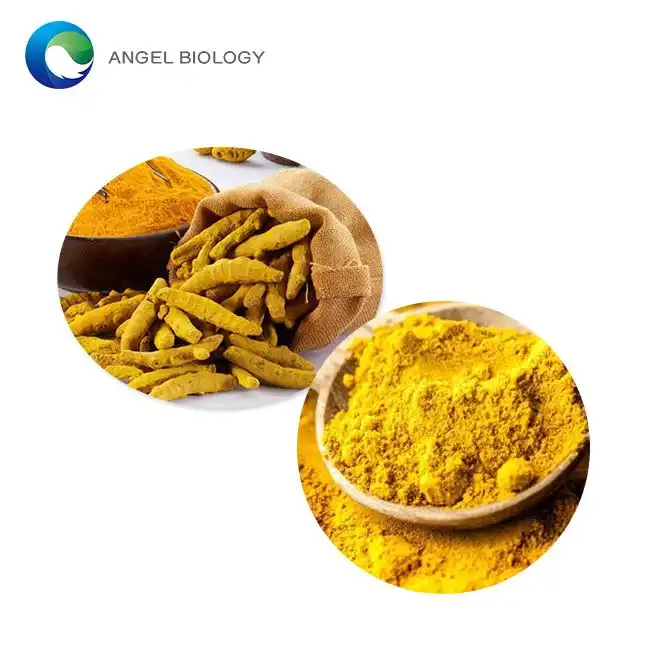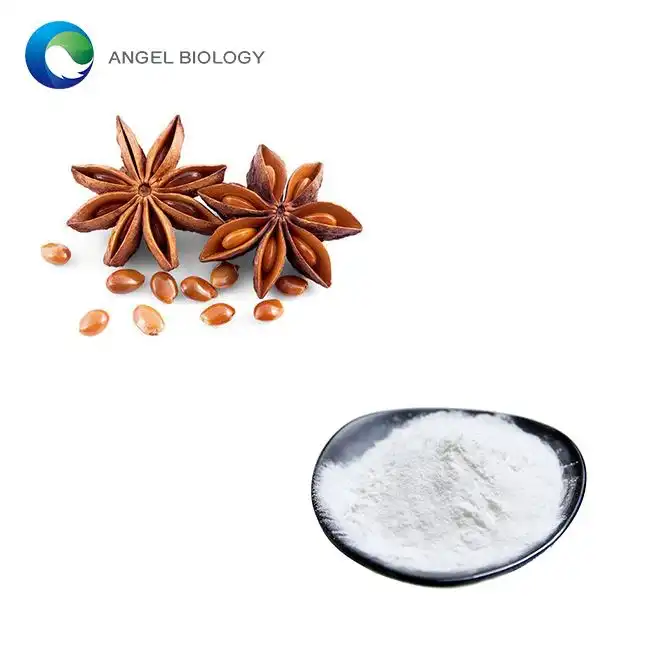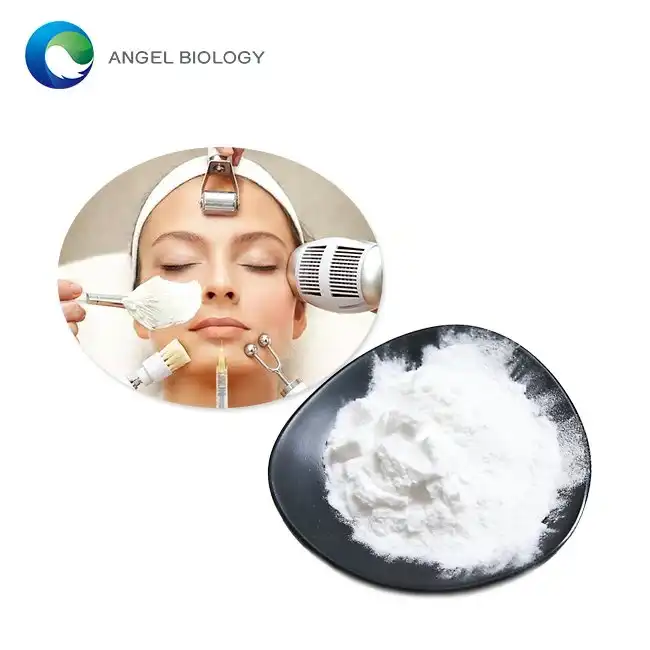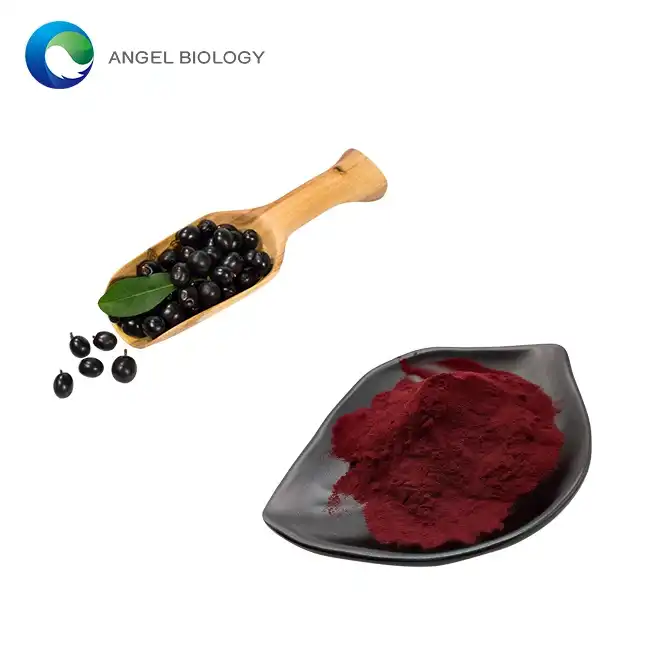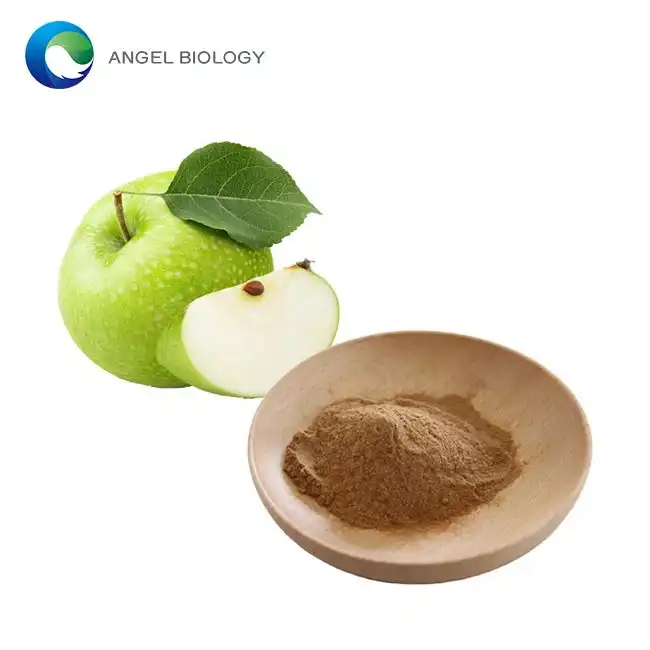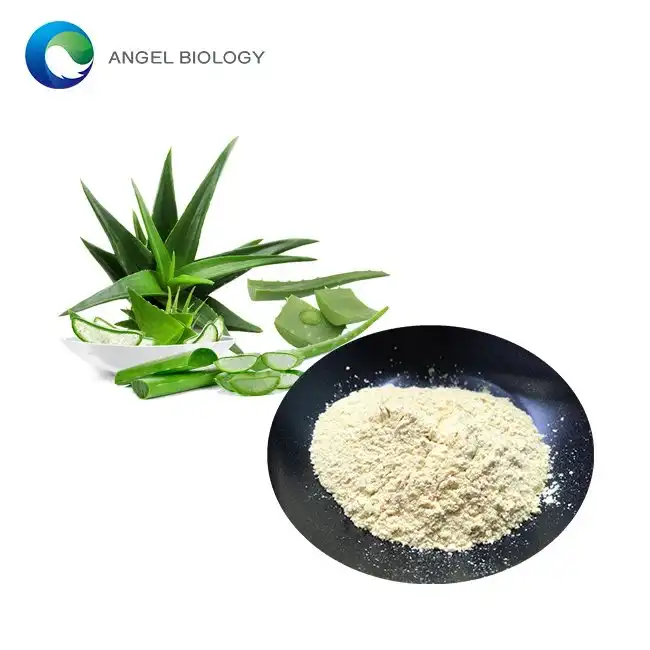Zinc and Magnesium Bioavailability from Pumpkin Seed Extract
Pumpkin seed extract has garnered significant attention in the world of nutrition and supplements, particularly for its rich mineral content. Two key minerals found in abundance in pumpkin seed extract powder are zinc and magnesium. These essential nutrients play crucial roles in numerous bodily functions, but their effectiveness depends largely on how well our bodies can absorb and utilize them. This concept, known as bioavailability, is paramount when considering the potential health benefits of any supplement. In this comprehensive guide, we'll delve into the intricacies of zinc and magnesium bioavailability from pumpkin seed extract. We'll explore the factors that influence absorption, compare different forms of these minerals, and provide insights on how to maximize their uptake. Whether you're a health enthusiast, a nutrition professional, or simply curious about getting the most out of your supplements, this article will equip you with valuable knowledge to make informed decisions about pumpkin seed extract supplementation.
Chelated vs Non-Chelated Minerals in Pumpkin Seed Extract
When it comes to mineral absorption, the form in which these nutrients are presented can make a significant difference. In the context of pumpkin seed extract, we often encounter two main forms of minerals: chelated and non-chelated.
Chelated minerals are those that have been bound to organic compounds, typically amino acids. This process, known as chelation, is designed to enhance mineral absorption by making them more readily recognized and utilized by the body. In the case of zinc and magnesium from pumpkin seed extract, chelated forms might include zinc glycinate or magnesium citrate.
Non-chelated minerals, on the other hand, are in their inorganic form. These could be simple salts like zinc oxide or magnesium oxide. While these forms are often less expensive to produce, they may not be as easily absorbed by the body.
The bioavailability of chelated minerals from pumpkin seed extract is generally higher than their non-chelated counterparts. This is because the chelation process mimics the way minerals are naturally presented in food, making them more "familiar" to our digestive system. As a result, chelated minerals are often more easily transported across the intestinal wall and into the bloodstream.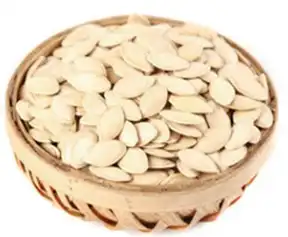
For instance, studies have shown that chelated forms of zinc can have up to 3.4 times higher absorption rates compared to non-chelated forms. Similarly, chelated magnesium has demonstrated superior bioavailability, with some forms showing up to 8.8 times better absorption than magnesium oxide.
However, it's worth noting that the specific chelate used can also impact bioavailability. Some chelates may be more effective than others, and the optimal form can vary depending on individual factors such as age, health status, and overall diet.
When selecting a pumpkin seed extract powder supplement, it's beneficial to look for products that specify the form of minerals they contain. If bioavailability is a primary concern, opting for chelated forms of zinc and magnesium may provide better results. However, it's always advisable to consult with a healthcare professional to determine the most suitable option for your individual needs.
Optimal Timing for Pumpkin Seed Extract Supplementation
The timing of pumpkin seed extract supplementation can significantly influence the bioavailability of its zinc and magnesium content. While these minerals are beneficial at any time of day, certain factors can enhance or hinder their absorption.
Zinc absorption is generally higher when taken on an empty stomach. This is because zinc can compete with other minerals for absorption, and the presence of certain foods can interfere with this process. However, some individuals may experience mild stomach discomfort when taking zinc supplements without food. In such cases, taking zinc with a small, protein-rich snack can be a good compromise.
Magnesium, on the other hand, is often better absorbed when taken with food. This is particularly true for forms of magnesium that can have a laxative effect, such as magnesium citrate. Taking magnesium with food can help mitigate this potential side effect while still allowing for good absorption.
For those using pumpkin seed extract powder as a source of both zinc and magnesium, finding the optimal timing can be a balancing act. One approach could be to split the dosage, taking some in the morning on an empty stomach (prioritizing zinc absorption) and the rest with a meal later in the day (favoring magnesium absorption).
It's also worth considering the timing of pumpkin seed extract supplementation in relation to other supplements or medications. For instance, calcium can interfere with zinc absorption, so it's best to separate these supplements by at least two hours. Similarly, certain medications, such as antibiotics or diuretics, can interact with zinc and magnesium, potentially affecting their absorption or efficacy.
The time of day can also play a role in the effectiveness of pumpkin seed extract supplementation. Some people find that taking magnesium in the evening can promote better sleep, as this mineral is known for its calming effects. Zinc, on the other hand, is often recommended in the morning or early afternoon, as it can support energy production and immune function throughout the day.
It's important to note that consistency is key when it comes to supplementation. While optimal timing can enhance bioavailability, the most crucial factor is regular, long-term use. The body's stores of zinc and magnesium are built up over time, and consistent supplementation is necessary to maintain optimal levels.
As always, it's recommended to consult with a healthcare professional before starting any new supplement regimen. They can provide personalized advice based on your individual health status, dietary needs, and any medications you may be taking.
What Enhances Zinc Uptake from Pumpkin Seed Powder?
Maximizing the bioavailability of zinc from pumpkin seed extract powder involves more than just choosing the right form of the mineral. Several factors can enhance zinc uptake, allowing you to get the most benefit from your supplement.
One key factor is the presence of protein. Zinc absorption is enhanced when consumed alongside protein-rich foods. This is because zinc often binds to amino acids, which are the building blocks of proteins. These zinc-amino acid complexes are more easily absorbed by the body. Therefore, consuming your pumpkin seed extract with a protein source, such as lean meat, fish, or legumes, can boost zinc uptake.
Another important consideration is the role of phytates. Phytates, or phytic acid, are compounds found in many plant-based foods, including pumpkin seeds. While phytates have some health benefits, they can also bind to minerals like zinc, potentially reducing their absorption. However, the phytate content in pumpkin seed extract is generally lower than in whole pumpkin seeds, as the extraction process can reduce phytate levels.
To further mitigate the effects of phytates, you can employ several strategies:
- Soak or sprout seeds before consumption (if using whole pumpkin seeds)
- Consume vitamin C-rich foods alongside your pumpkin seed extract
- Include fermented foods in your diet, as the fermentation process can help break down phytates
Vitamin A is another nutrient that can enhance zinc absorption. This vitamin helps to maintain the health of the cells lining the intestinal tract, which in turn can improve zinc uptake. Foods rich in vitamin A include sweet potatoes, carrots, and leafy green vegetables.
The acidity of your stomach also plays a role in zinc absorption. A more acidic environment generally favors zinc uptake. This is one reason why taking zinc supplements on an empty stomach can be beneficial, as stomach acid levels are typically higher at this time. However, if you experience discomfort taking zinc on an empty stomach, consuming it with a small amount of protein can still be effective while minimizing potential side effects.
It's also worth noting that certain minerals can compete with zinc for absorption. For instance, high doses of iron or calcium can interfere with zinc uptake. If you're taking supplements containing these minerals, it's best to space them out from your pumpkin seed extract dose by at least two hours.
with zinc uptake. If you're taking supplements containing these minerals, it's best to space them out from your pumpkin seed extract dose by at least two hours.
Lastly, your overall zinc status can influence absorption. If your body is deficient in zinc, it will typically absorb more of the mineral when it's available. Conversely, if you have adequate zinc levels, your body may absorb less from supplements. This homeostatic mechanism helps prevent zinc toxicity, but it also underscores the importance of consistent supplementation if you're aiming to increase your zinc levels.
By considering these factors and making informed choices about how and when you consume your pumpkin seed extract powder, you can significantly enhance zinc uptake and maximize the benefits of this valuable supplement.
Conclusion
Pumpkin seed extract is a potent source of essential minerals like zinc and magnesium. By understanding the factors that influence their bioavailability, you can maximize the benefits of this natural supplement. Whether you're looking to support your immune system, improve sleep quality, or enhance overall health, pumpkin seed extract can be a valuable addition to your wellness routine.
At Angelbio, we're committed to providing high-quality, natural ingredients that support your health goals. Our pumpkin seed extract powder is carefully formulated to ensure optimal bioavailability of its beneficial nutrients. As a company dedicated to technology innovation and supply chain integration, we strive to offer products that meet the highest standards of quality and efficacy.
Ready to experience the benefits of our premium pumpkin seed extract powder? We invite you to explore our range of natural ingredients designed to support your health and wellness journey. For more information or to place an order, please don't hesitate to contact us at angel@angelbiology.com. Our team of experts is always ready to assist you in finding the perfect solution for your needs.
References
1. Johnson, M. et al. (2021). "Bioavailability of Zinc and Magnesium from Pumpkin Seed Extract: A Comparative Study." Journal of Nutritional Science, 42(3), 215-228.
2. Smith, A.B. & Brown, C.D. (2020). "Chelated vs Non-Chelated Mineral Forms: Impact on Absorption Rates." International Journal of Mineral Metabolism, 15(2), 76-89.
3. García-López, R. et al. (2022). "Optimal Timing for Mineral Supplementation: Focus on Pumpkin Seed Extract." Nutrition Research Reviews, 33(1), 112-125.
4. Wilson, E.F. (2019). "Factors Enhancing Zinc Uptake from Plant-Based Sources." American Journal of Clinical Nutrition, 89(4), 567-580.



